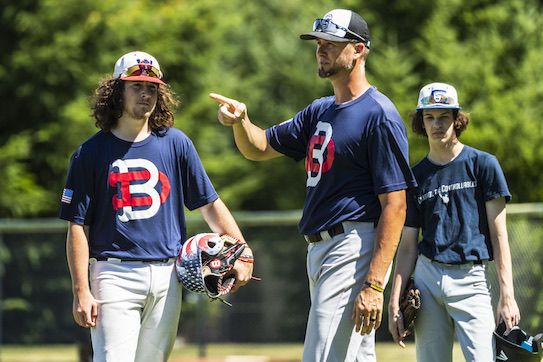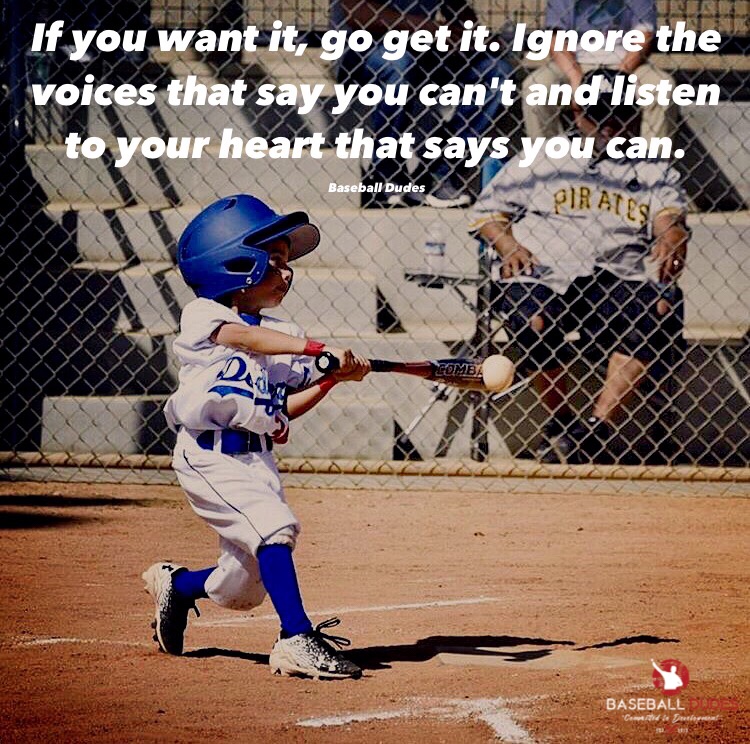 “The manager wants to see you. Please come with me…”
“The manager wants to see you. Please come with me…”
“We’re letting you go.” “We’ve decided to go in a different direction.” “The trainer will have your plane ticket.” “Good luck.”
The meeting we all hear about. The words you dread one day hearing. You try not to think about it but it’s a true reality in professional baseball. Most will hear these words at some point in their career with a majority hearing it much sooner than they had ever hoped.
For me personally it happened 3 times.
The first time came in my 7th season. It was my first year as a free agent. After spending my first 6 seasons in the Cubs organization, I signed with the Astros. My big league camp performance left much to be desired with my minor league appearances being very average too. With three days left in camp, I received the message. “We’re letting you go.”
With the support of a local area scout for the Rockies, I found myself in their AAA clubhouse on opening day. For those that know me well, they know I feel everything happens for a reason. That day I found myself in front of the pitching coach who would later help change my career, Bob McClure. Without this opportunity handed to me, I honestly feel my career would have soon been over and who knows where I would be today.
I went on to have possibly the best season of my career to date while pitching it what many refer to as the best hitters ballpark in the nation. In my opinion, all because I was taught how to command the inside part of the plate, how it affected the hitters, how much they hatted it and how much it opened up the outside part of the plate.
The second time came the next spring training. The Rockies did not offer me a contract for the next season and I ended up signing a free agent contract with the Giants. From what I remember my spring training performance wasn’t anything spectacular. I went with the team to their AAA city where we had a practice the night before opening day. After the workout, I got that dreaded call into the managers office. “We’re letting you go.”
There isn’t a worst possible time to be let go. All teams have set their rosters and are ready to go. I proceeded to spend the next month at home and was just a few days away from going to play independent league baseball when I finally got the call from the Rockies I was hoping for. I finally joined their AAA team a week or so later and from there went on to have an even a better year than the previous even though missing the first month and a half of the season. Somehow the stars aligned and I got to spend the last month and a half in the big leagues. Talk about roller coaster season!
The third and final release came in my 13th, and final, spring training as a player. In minor league camp I put up zero’s across the board. I got to pitch in a few games in big league camp but didn’t do much to impress. With a few days left in camp, I got the call. “We’re letting you go.”
With the writing on the wall, three children and a new business at home, I decided that was enough. I have no doubt I could have kept going but it was just time. I wouldn’t change my journey for the world.
I wanted to share this with you to tell my story of being told I wasn’t good enough. I didn’t have what they were looking for. I didn’t fit into their plans. It didn’t matter where I had been, what I had accomplished or what I thought they should do, they didn’t need, nor want, my skill set.
Did I go home a whine and complain to anyone who would listen about how I think they screwed me, nope! Did I give up and quit, nope! Did I see this as the end, nope! Did I find someway to keep believing in myself and what I could do, yep! Did I keep working hard, yep! Did I use this as motivation to prove to myself and everyone else that I could do it, you better believe it!
I was “Released” twice before I got that call to the big leagues. I was told I wasn’t good enough multiple times before I was offered a life changing contract from a team in Japan. I was given a plane ticket home before the season even started two different times before the best years of my career.
NEVER give up! If you want it bad enough, the sky is the limit. You MUST believe more than anyone else does. Keep working hard. Keep learning. Keep pushing even though others may be telling you to stop. If you want it, GO GET IT!





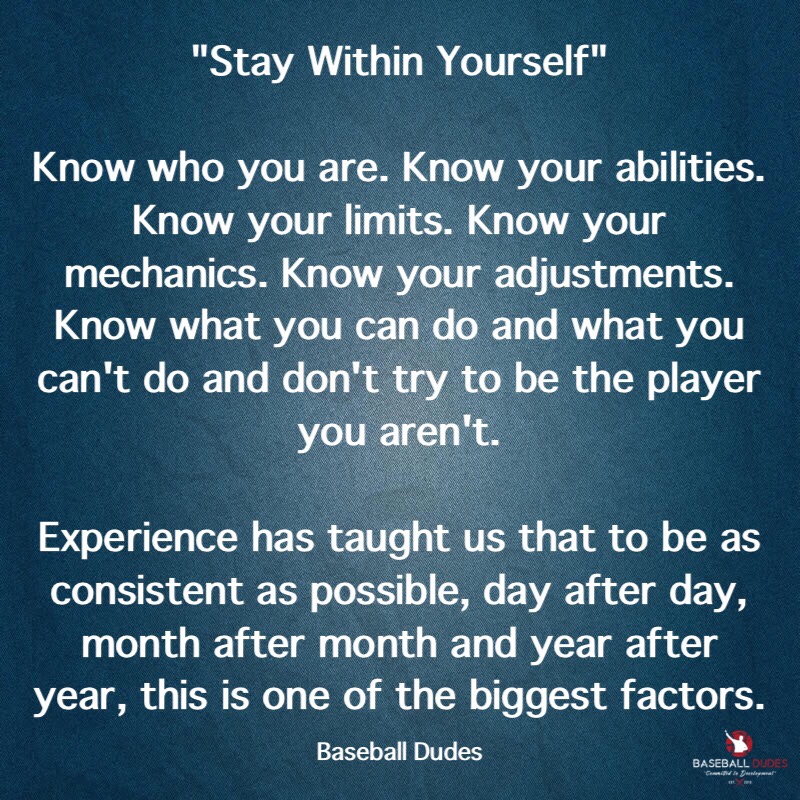 Video Analysis and over thinking/over coaching…
Video Analysis and over thinking/over coaching…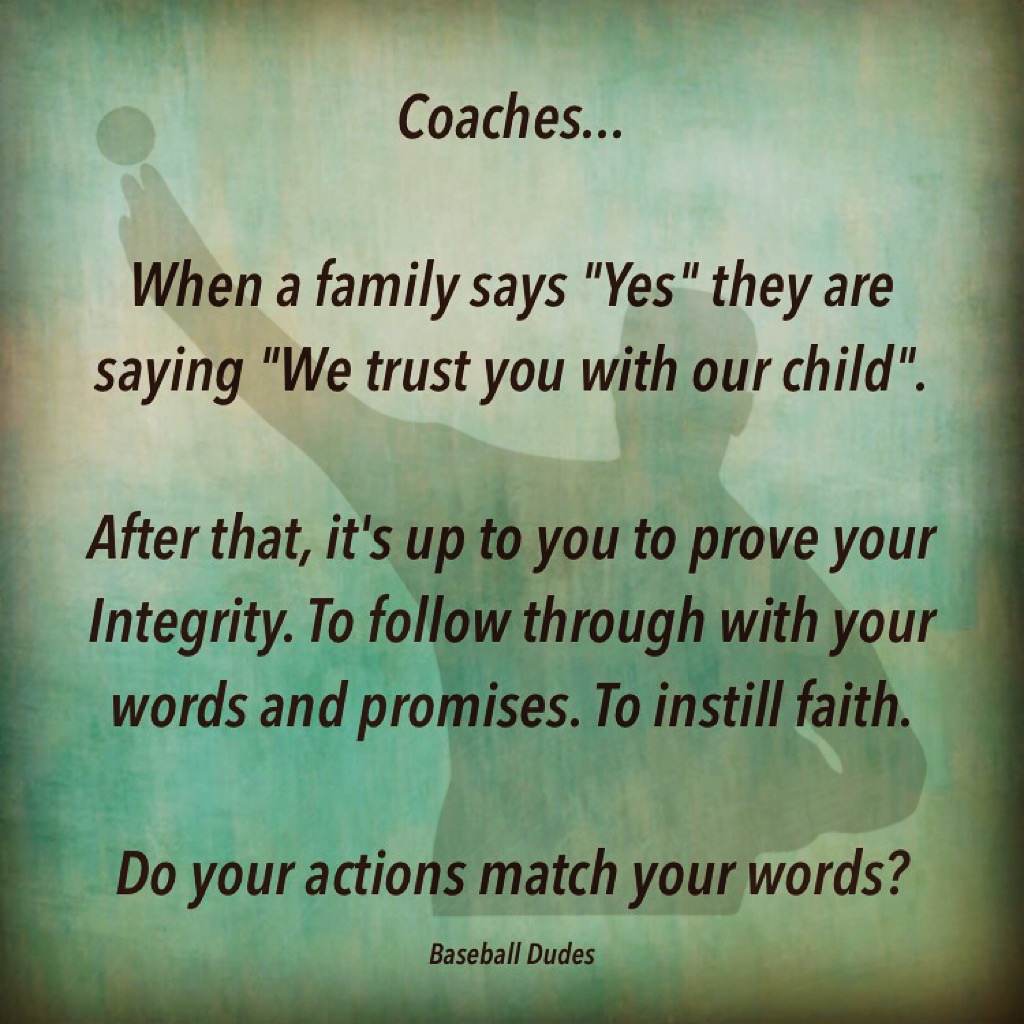 What’s best for their safety? What’s best for their development? What’s best for their future? What’s best for the athlete? What’s best for their character? Ask 100 different grown men and you are likely to get 100 different opinions. And with those 100 opinions, you will too often find no plan or wiggle room for adjustment in those beliefs.
What’s best for their safety? What’s best for their development? What’s best for their future? What’s best for the athlete? What’s best for their character? Ask 100 different grown men and you are likely to get 100 different opinions. And with those 100 opinions, you will too often find no plan or wiggle room for adjustment in those beliefs.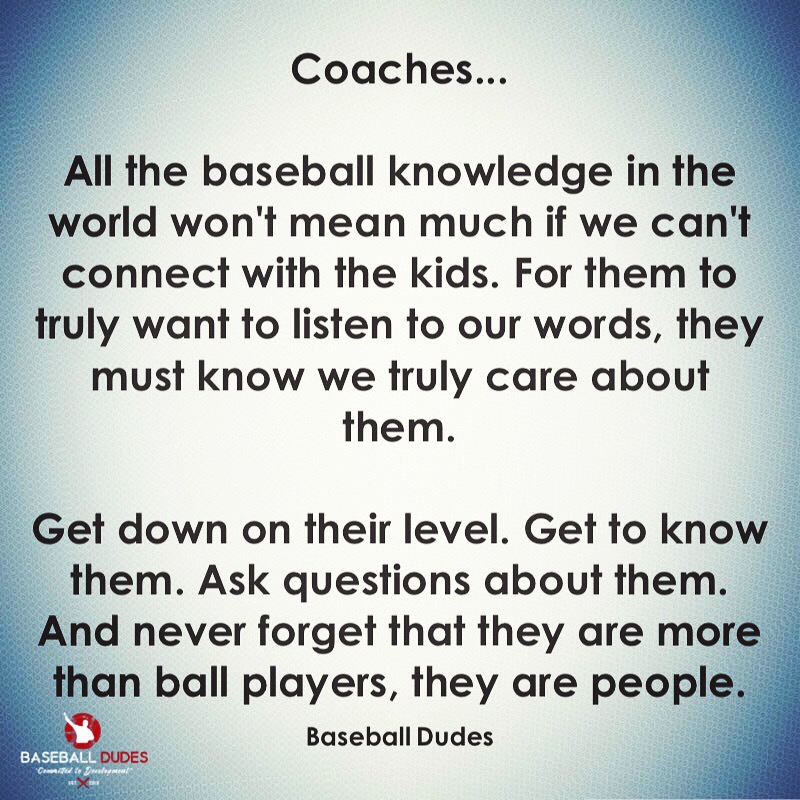 As I reflect on life, as I hope you all do often, the future is always a focus. Be it family, business, our students or those that follow us, the idea is always, “How can we get better?” “What do they need?” “How can we help them?”
As I reflect on life, as I hope you all do often, the future is always a focus. Be it family, business, our students or those that follow us, the idea is always, “How can we get better?” “What do they need?” “How can we help them?”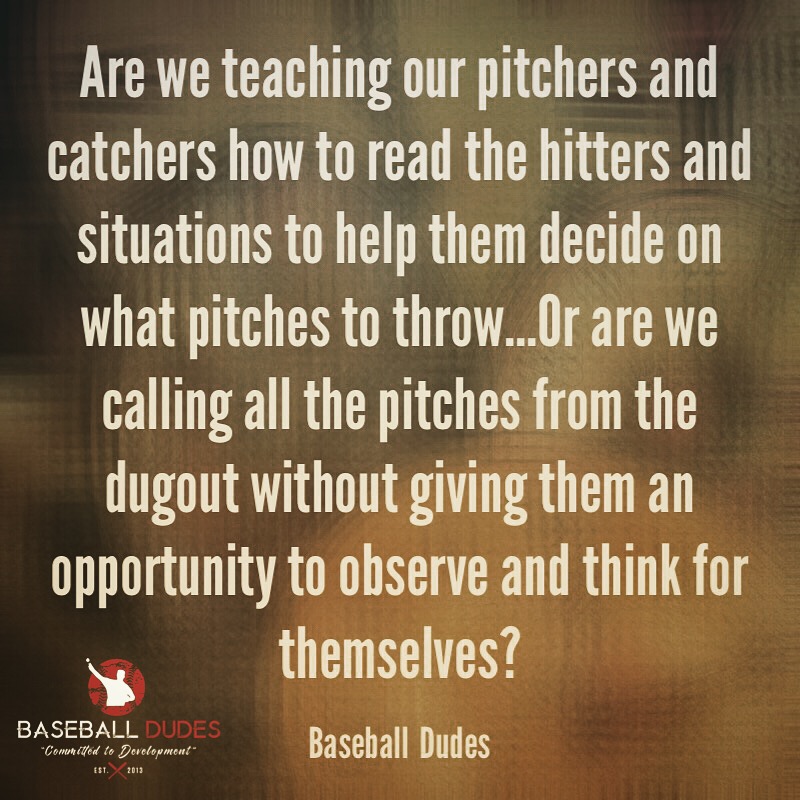 Raising and developing people…
Raising and developing people…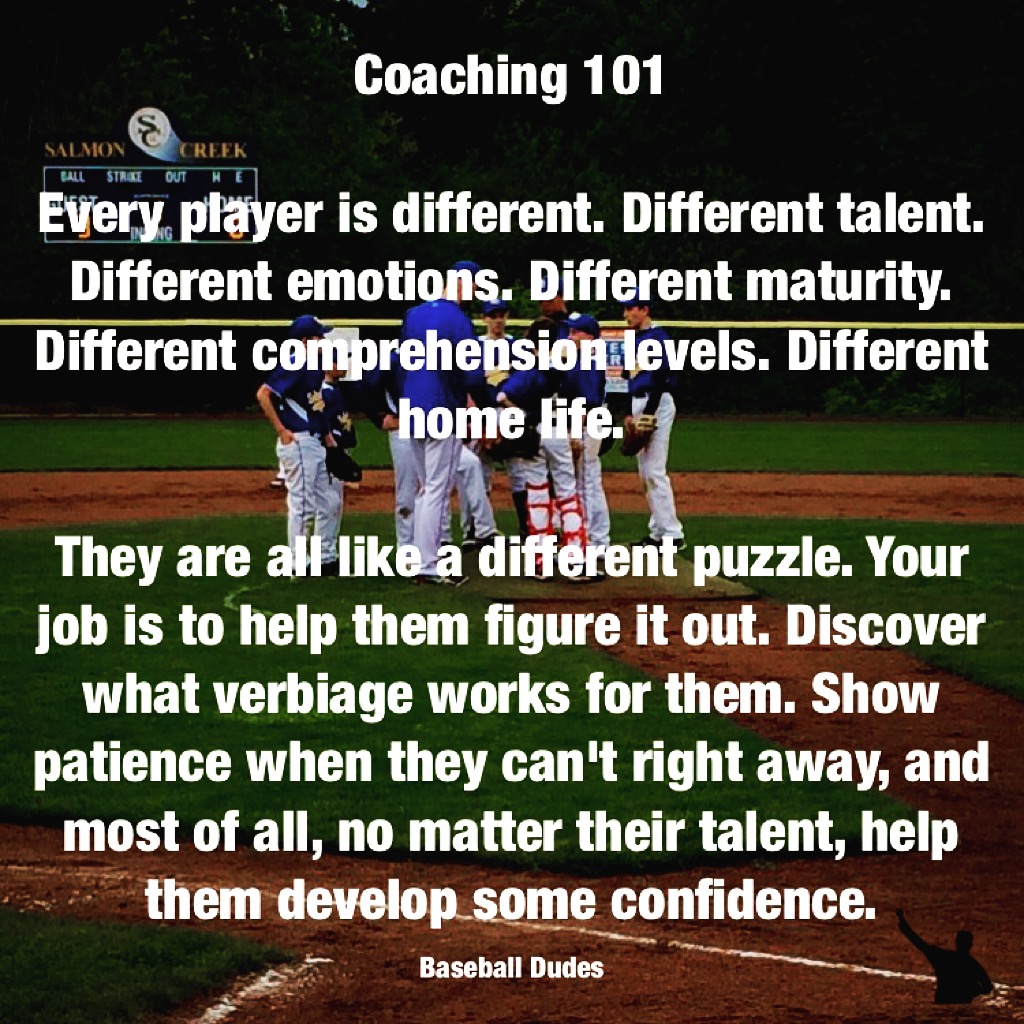 You won’t find a coach out there that doesn’t use the word “Development” when referring to their goals, approach or program. Here are 8 things we hear from across the country that completely contradict this important word…
You won’t find a coach out there that doesn’t use the word “Development” when referring to their goals, approach or program. Here are 8 things we hear from across the country that completely contradict this important word…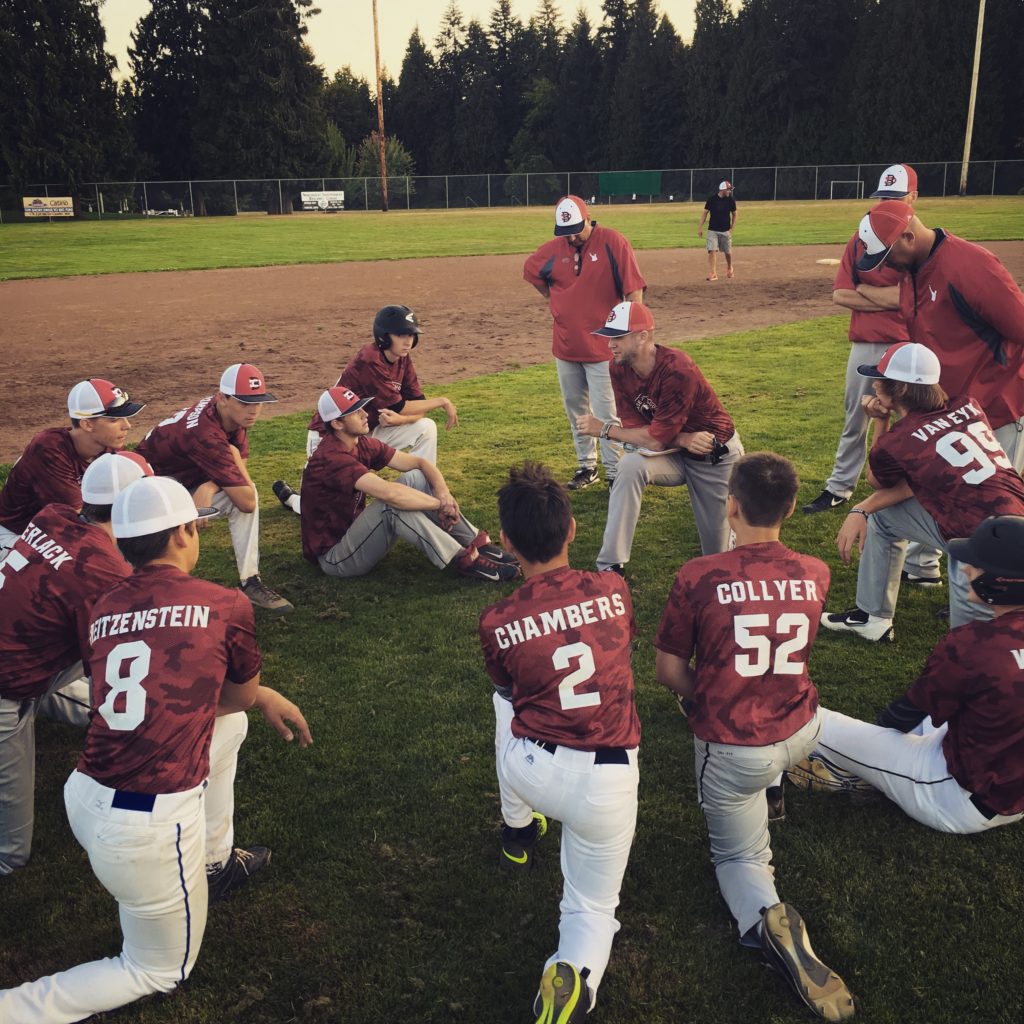 1. Provide players with playing time at multiple positions throughout the season to enhance baseball IQ. DON’T play them at just 1 or 2 positions all season.
1. Provide players with playing time at multiple positions throughout the season to enhance baseball IQ. DON’T play them at just 1 or 2 positions all season.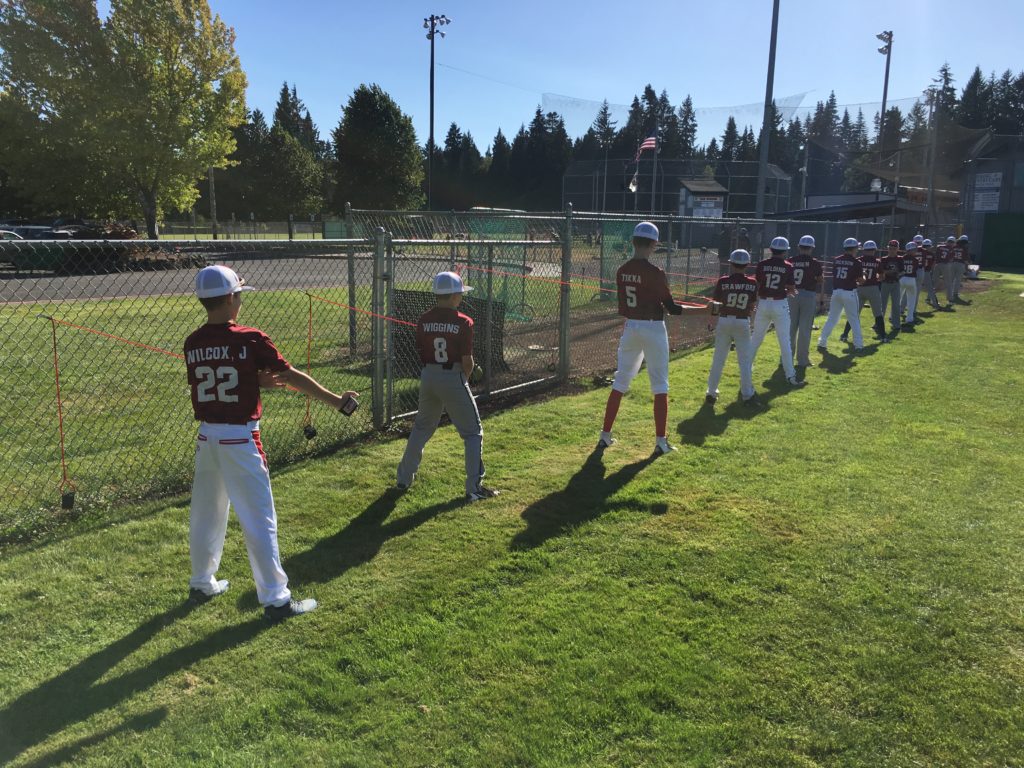 It’s been asked so many times, it’s hard to keep track of.
It’s been asked so many times, it’s hard to keep track of. 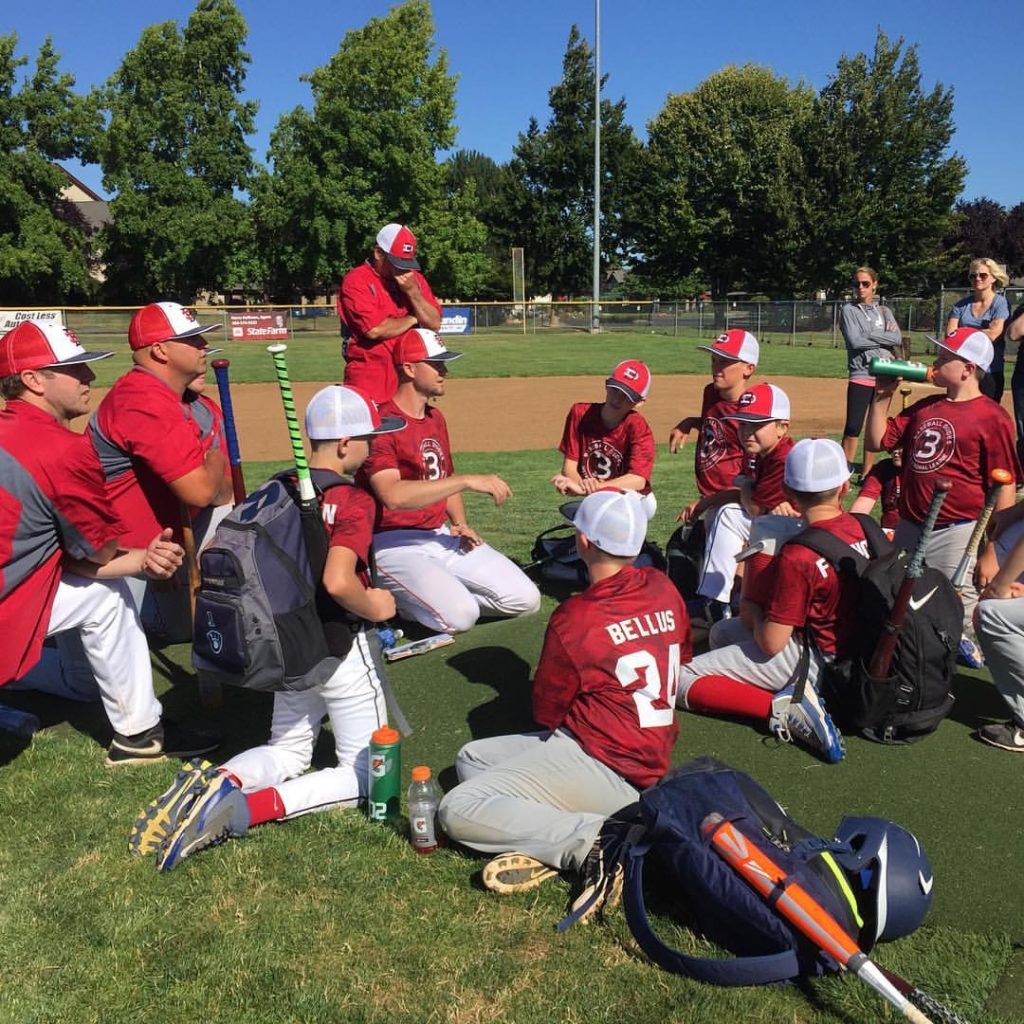 A former teammate of mine posted on social media the other day with a short but powerful message…
A former teammate of mine posted on social media the other day with a short but powerful message…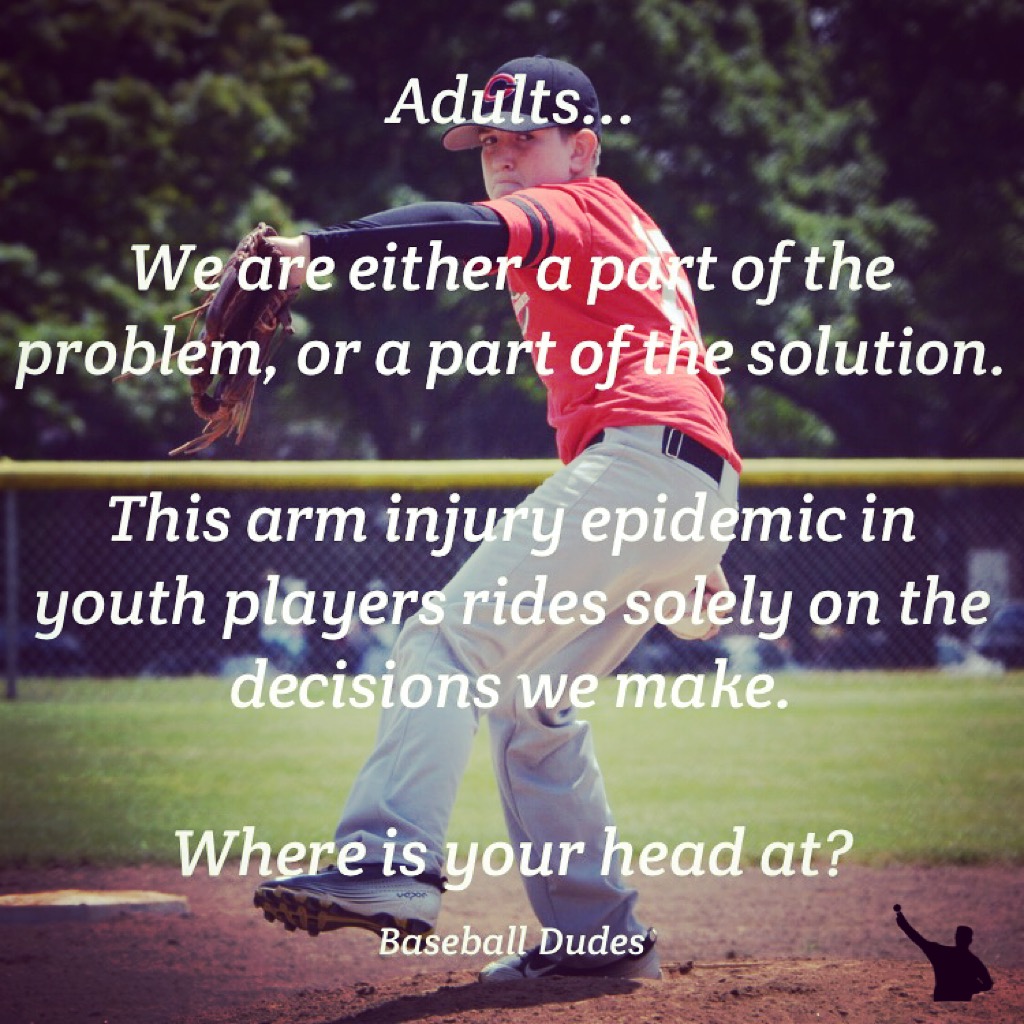 Before I get into it, let’s get some things very clear right out the gate. Baseball is the best game on earth. If you can’t tell by now, I am very passionate about teaching it and feel very strongly about the life lessons it can teach. Respecting the game, our opponents, the umpires, our teammates, the fans and our players and their parents is a big deal to me. It’s a game that’s played to win but that shouldn’t be the end all. The safety, future and health of our young players bodies and arms should be a major concern. Through experience, I have seen that health is the number one cause of most players never reaching their full potential. And last, this is about more than just developing ball players, this is about developing people.
Before I get into it, let’s get some things very clear right out the gate. Baseball is the best game on earth. If you can’t tell by now, I am very passionate about teaching it and feel very strongly about the life lessons it can teach. Respecting the game, our opponents, the umpires, our teammates, the fans and our players and their parents is a big deal to me. It’s a game that’s played to win but that shouldn’t be the end all. The safety, future and health of our young players bodies and arms should be a major concern. Through experience, I have seen that health is the number one cause of most players never reaching their full potential. And last, this is about more than just developing ball players, this is about developing people. 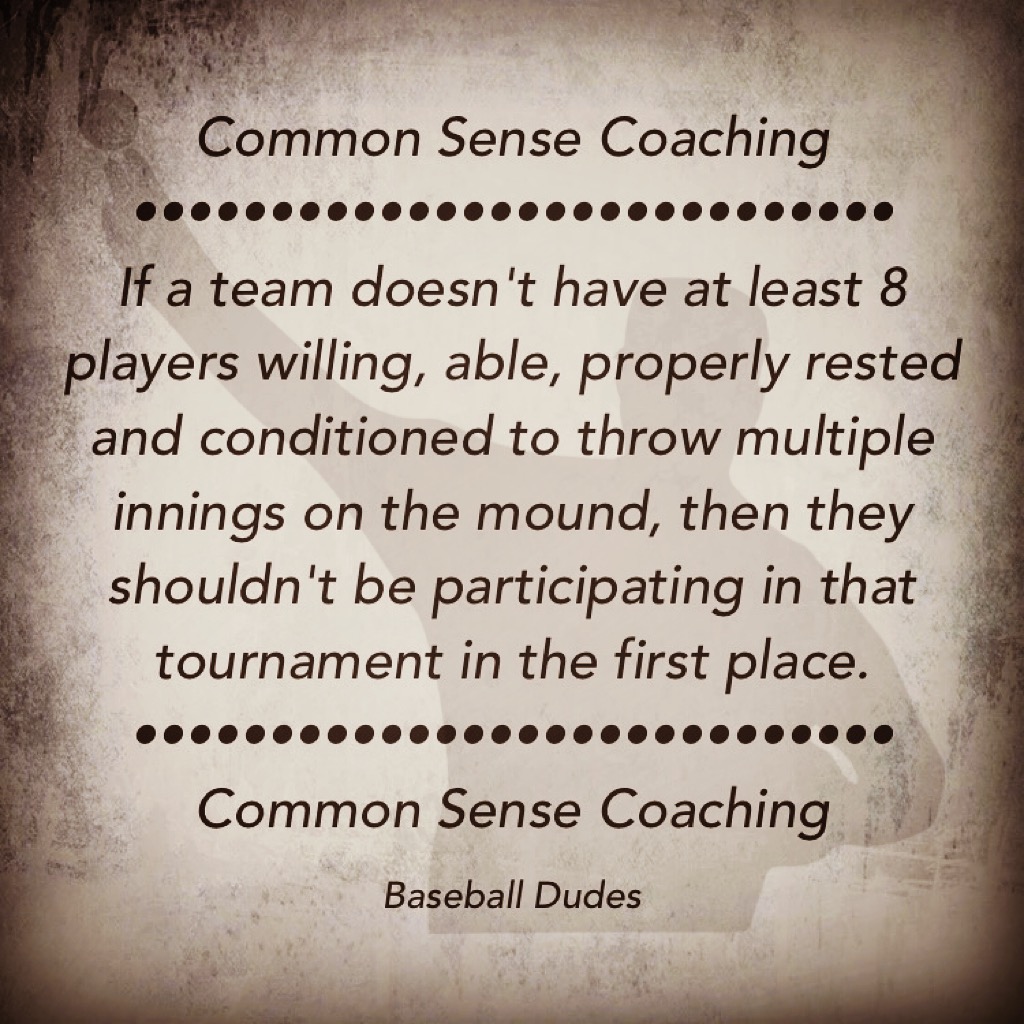 In 2012 I accepted a minor league pitching coach position with the LA Angels. I spent the next 3 years around some great Baseball minds, learned a ton about development but was slapped in the face when over 50% of our new draftees each year came in with a zipper on their arm (that’s a name for the Tommy John surgery scar). What the heck is going on??
In 2012 I accepted a minor league pitching coach position with the LA Angels. I spent the next 3 years around some great Baseball minds, learned a ton about development but was slapped in the face when over 50% of our new draftees each year came in with a zipper on their arm (that’s a name for the Tommy John surgery scar). What the heck is going on??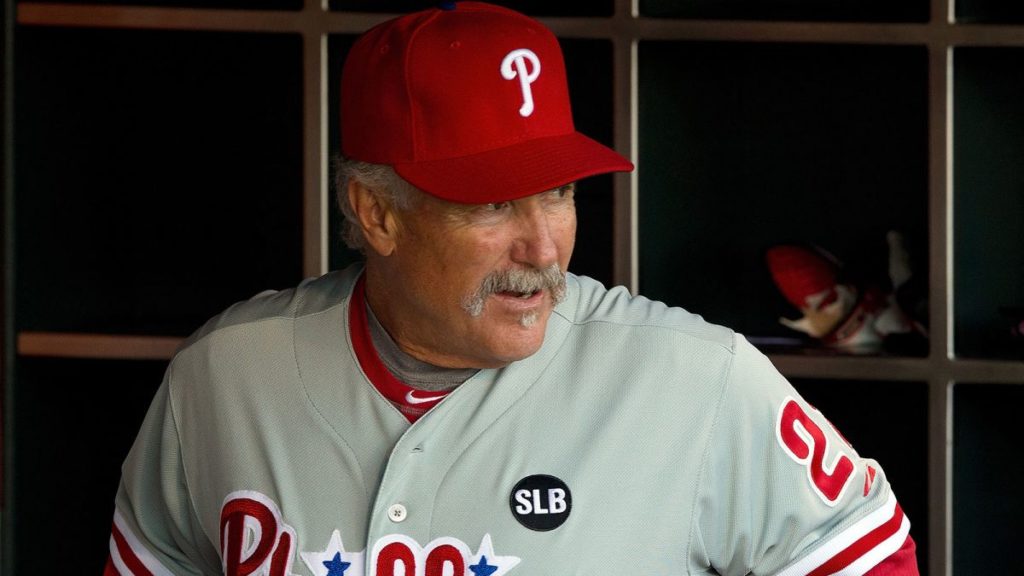
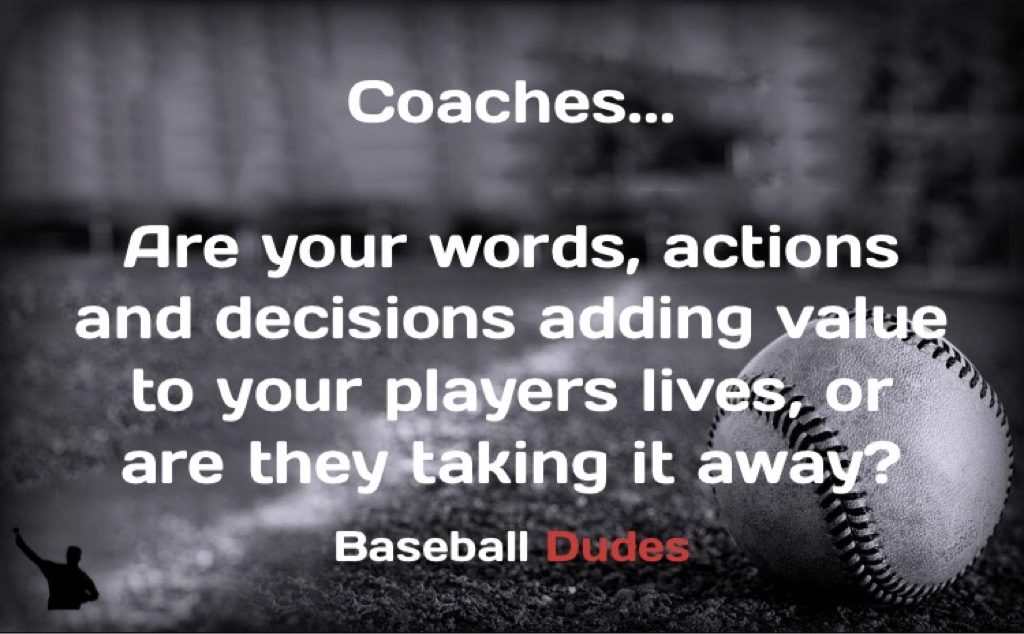 Last Saturday after my oldest sons game, he’s 13, we had our usual post game discussion to cover areas we need to keep working on and areas that they are improving at and doing well. There are three of us coaches (I’m not the head coach, just there to help when I can) and it makes me very happy to hear the message the other coaches are giving these young ones.
Last Saturday after my oldest sons game, he’s 13, we had our usual post game discussion to cover areas we need to keep working on and areas that they are improving at and doing well. There are three of us coaches (I’m not the head coach, just there to help when I can) and it makes me very happy to hear the message the other coaches are giving these young ones.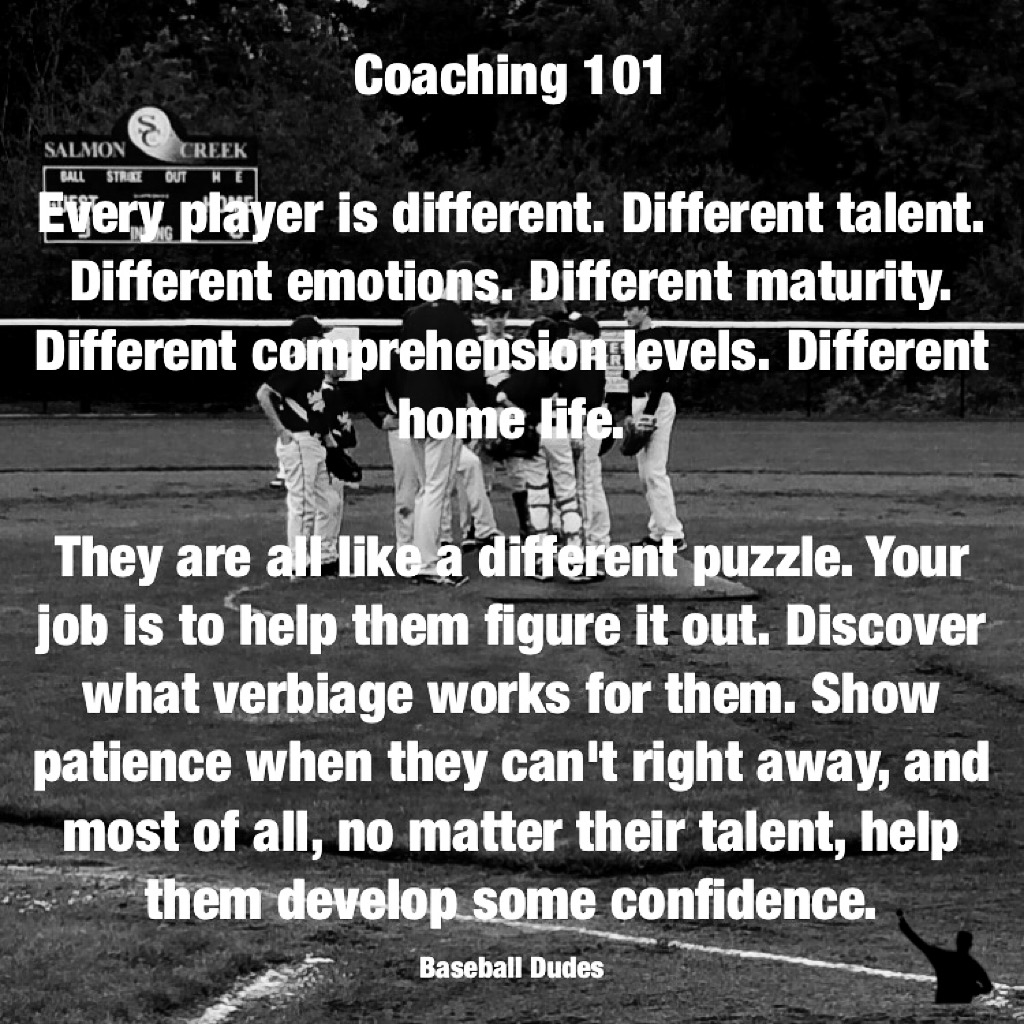 This question comes up every once in a while…
This question comes up every once in a while…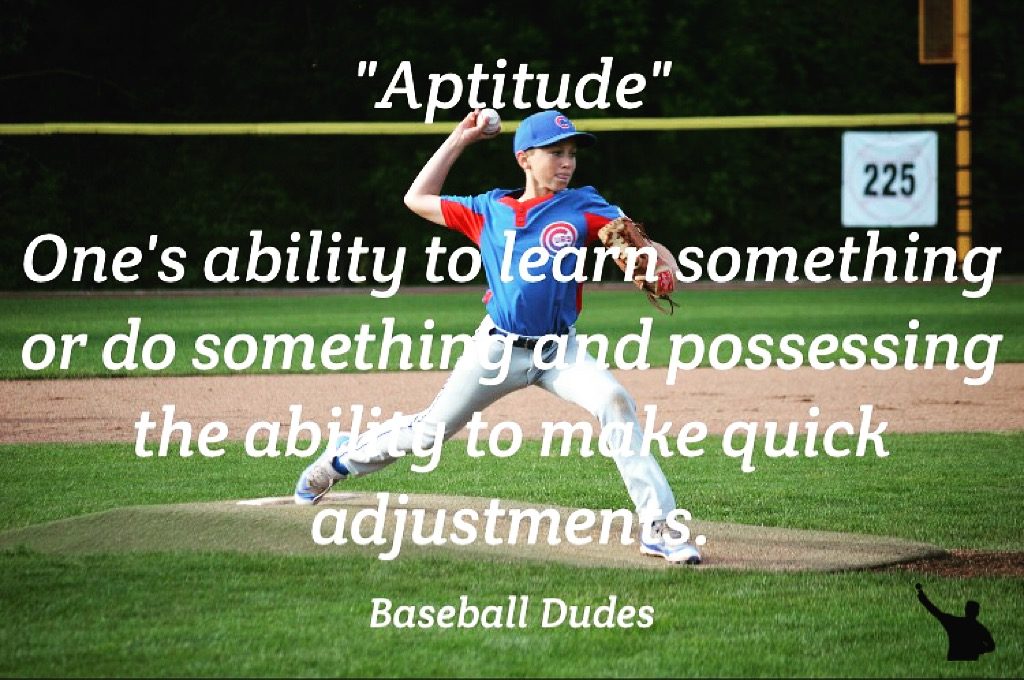 This word is used often amongst coaches at the higher levels of this game.
This word is used often amongst coaches at the higher levels of this game.